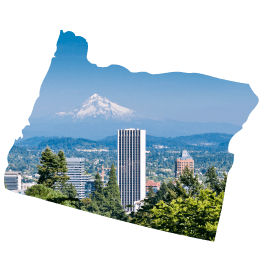Alternate Route Usage and Providers: Oregon
Expanding the Pool of Teachers Policy
Analysis of Oregon's policies
Oregon limits the usage and providers of its alternate routes.
Oregon does not have restrictions on the usage of its alternate routes with regard to subject, grade or geographic areas. However, the state does require districts to document that no traditionally certified teachers were available.
Oregon authorizes only local universities and colleges to offer alternate route programs.
Recommendations for Oregon
Broaden alternate route usage.
Oregon should reconsider the restrictions on its alternate route. The state should provide a true alternative path to certification and eliminate requirements that alternate route teachers can only be hired if traditionally certified teachers cannot be found. Alternate routes should not be programs of last resort for hard-to-staff subjects, grade levels or geographic areas but rather a way to expand the teacher pipeline throughout the state.
Encourage diversity of alternate route providers.
Oregon should specifically authorize alternate route programs run by local school districts and nonprofits, as well as institutions of higher education. A good diversity of providers helps all programs, both university- and non-university-based, to improve.
State response to our analysis
Oregon asserted that no alternate route providers have applied to the state for approval of teacher preparation in the past 10 years. However, the state has approved a school district's request to prepare school counselors and is working with the Administrator's Association to provide administrative licensure. The state also contended that the Career and Technical Education licenses are alternate route licenses.
Select another topic
Delivering Well Prepared Teachers
- Admission into Preparation Programs
- Elementary Teacher Preparation
- Elementary Teacher Preparation in Reading Instruction
- Elementary Teacher Preparation in Mathematics
- Middle School Teacher Preparation
- Secondary Teacher Preparation
- Secondary Teacher Preparation in Science
- Secondary Teacher Preparation in Social Studies
- Special Education Teacher Preparation
- Assessing Professional Knowledge
- Student Teaching
- Teacher Preparation Program Accountability
Expanding the Pool of Teachers
Identifying Effective Teachers
- State Data Systems
- Evaluation of Effectiveness
- Frequency of Evaluations
- Tenure
- Licensure Advancement
- Equitable Distribution

